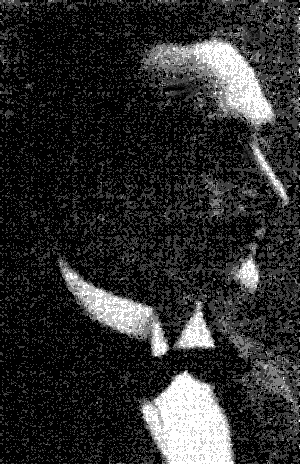|
 |
|
Born on 15 August 1891 in
Bezhezhin [Brzeziny], by Lodz, Poland, wherein his
parents, Chasidic grain merchants, had later moved. He
learned in a cheder, and at the age of fifteen he was in
the Lomza yeshiva, then with the Lodz rabbi Eliyahu
Meisel, and lamdoni-khuts in a folksshul.
Through his being a
messenger for Sam Adler, he received access to the
behind-the-scenes of the Yiddish theatre, and through
this became so in love with the theatre, that he used to
rest behind the locks there [oysbahaltn hinter dhi
shtuln] on the weekdays until the evening
productions, used to steal money from his home for
tickets to the theatre. After copying the actors, G.
brought together several youths, and with them performed
in the neighboring cities Zgierzh Solotorefsky's
"Yeshiva bokher," playing the title role. The actor
Gelade saw him by chance act and took him into his
troupe, where he played for several weeks, then with
Bialkovitsh. Due to military service, his acting was
interrupted, and he once again renewed [his acting]
first in 1915 (for three months) with Ester Rokhl
Kaminska across Poland, then participated for several
months in a tour with Julius Adler and Herman Serotsky,
and later began on his own to manage troupes across
Poland, especially since his marriage to Regina Tsuker,
with her as a main role player.
Her brother Zygmunt
Turkow writes:
T. also had, together with
his wife, played for nine months in |


